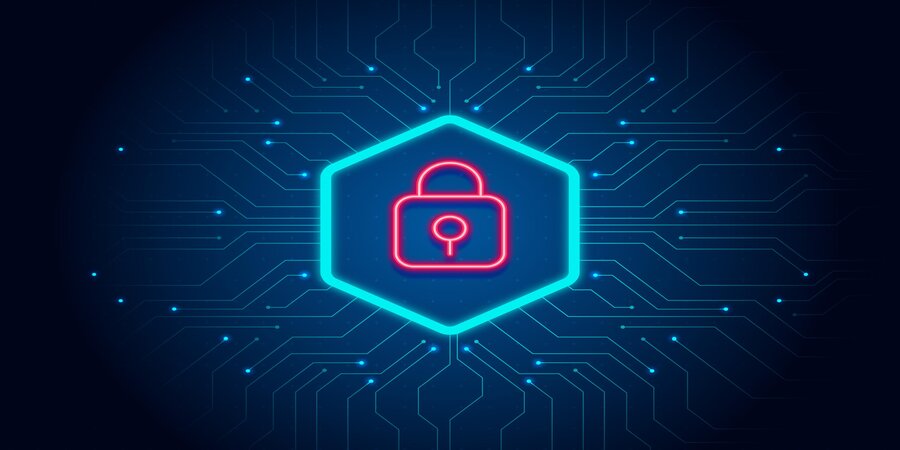Know Your Enemy: Common Cybercrime

As online presence is becoming an everyday routine for more and more people, every user should learn about typical cyber crimes. If you know what to expect, you are already partially protected. In this case, knowledge is the power that can save you or your business and prevent falling for cybercriminals' tricks and schemes.
What Is a Cybercrime?
You constantly hear of cybercrime or hackers, but the terms are rarely explained. If thinking of cybercrime, you imagine anything complicated and not likely to happen to you, that isn't strictly true. Cybercrime represents criminal schemes that can happen to anybody - ordinary people or large corporations - every minute. And hackers aren't only scary people wearing hoodies and dark clothes. They can be ordinary people (neighbours or colleagues), groups, companies, or even government agencies.
Cyber crimes are illegal actions using the Internet for various purposes - financial or other gains (cyber extortion), espionage, identity theft, political or personal reasons and many more.
Types of Cybercrime
Depending on a targeted object, cyber crimes fall into individual, property and government.
According to the role of devices in criminal actions, cyber crimes are basically divided into two categories:
- targeting devices (computers, smartphones, etc.): spreading viruses and malware attacks; DoS attacks;
- using devices to perform illegal activities: phishing; identity theft; cyberstalking.
For that criterion, the third type can also be distinguished - cybercrime utilizing both strategies. Now find out more about common cybercrime.
Malware
Malware, a malicious software, is one of the oldest types of cybercrime and, unfortunately, still successful. The procedure represents an attack infecting a targeted device with malware (viruses, Trojans, worms, adware, spyware, etc.).
One of the serious malware types is ransomware. It encrypts data on a device or network and demands a ransom to unlock it. This type is comparatively new and already notorious for attacking businesses and government agencies with vital confidential state and individual data.
DoS Attacks
DoS (Denial-of-Service) attacks aim to shut down a website, system, network, or device so that it's unavailable to its intended users by, primarily, flooding the targeted device or system - overwhelming its capacity.
If the cyber attack is launched from multiple distributed sources (like botnets), it's called DDoS - a Distributed Denial-of-Service attack.
Cyber Extortion
Cyber extortion is a relatively new type of cybercrime. An extortioner demands money, goods, or services from a victim to prevent harm to the person, business, reputation, property, or return access to sensitive data.
Hackers often use DDoS attacks and ransomware as their tools. Unlike cyber blackmail, where criminals don't usually use complicated technologies and bluff in most cases, extortionware is a real dangerous threat.
Identity Theft
Identity theft is a cybercrime committed to access, steal sensitive personal or corporate information, and sell it. Criminals can get money directly from your accounts, by committing tax or insurance fraud, or sell all data to the buyer on the Dark Web, etc.
No matter how fast a victim deals with this cybercrime, identity theft may have long-term negative consequences.
Phishing
Phishing scammers send emails or text messages forcing victims to do some online actions (opening a malicious link, downloading dangerous attachments, revealing confidential information, etc.), leading to undermining cyber security. It results in a personal or corporate data breach.
Phishing schemes are always built on some level of trust. Criminals usually pose as friends, family members, colleagues, or trustworthy organizations. Experienced hackers send messages that are rather difficult to identify as fake. That's why so many people fall for their tricks: click on unknown URLs, download infected files, and fill in forms with personal or corporate information without thinking of substantial negative consequences.
Cyber Espionage
This type of cybercrime is often committed by rival companies or governments. For business purposes, the goal is to get as much as possible about successful competing companies - their plans, methods, confidential information, intellectual property, emails, text messages, footage, etc.
The answer to most issues for individuals and businesses is to prioritize cybersecurity awareness. Prevent cyber crimes or reduce their risks with proper cyber hygiene or the help of cyber security experts.

Categories
For your convenience, we’ve divided our blog on cyber security into several categories so that you can find necessary articles fast and effortlessly. Just choose the category that evokes your interest and enjoy reading.